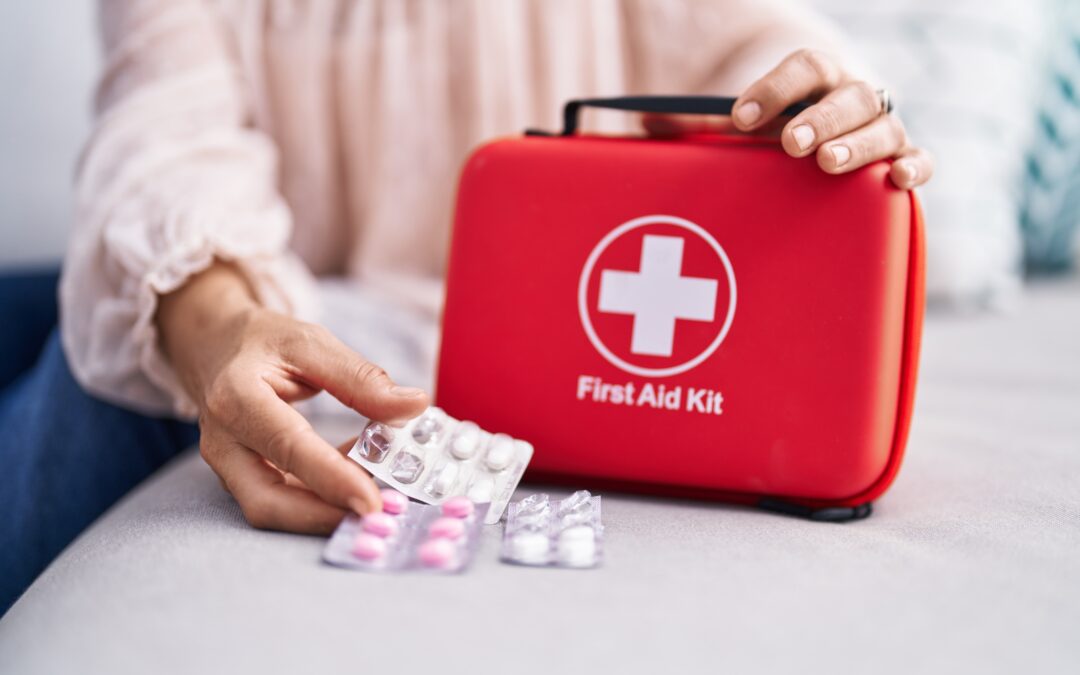Recognized every March, American Red Cross Month draws attention to the
organization’s humanitarian work and commitment to communities around the world in
times of crisis. With over 65,000 crisis responses each year, the Red Cross reminds us
all—especially seniors—of the importance of emergency preparedness. Seniors can
take proactive measures to prepare for unexpected situations by having a well-stocked
emergency kit at home. To help you get started, the Seniors Helping Seniors® team has
created an easy-to-follow guide to help you in gathering the essentials for an effective
emergency kit.
In this Seniors Helping Seniors® blog, we’ll cover why emergency preparedness
matters, what seniors should include in their kits, and how a little planning can provide
peace of mind. Keep reading to learn how to prepare, stay safe, and ease worries with
the right emergency kit for seniors.
The Importance of Emergency Preparedness for Seniors
Seniors face unique challenges in emergency situations, from mobility limitations to
medical concerns, that can make quick action difficult. Conditions like impaired vision or
hearing can slow response times, making preparedness even more essential. That’s
why the Seniors Helping Seniors® team encourages taking proactive measures. When
every second counts, knowing essential supplies are ready to go can provide peace of
mind to both seniors and their loved ones. Preparation isn’t just about safety—it’s about
confidence and independence.
Items Seniors Should Include in Their Emergency Kit
If a disaster strikes, having the right supplies on hand can make all the difference. Start
by considering the risks most common in your area, like hurricanes along the coast or
wildfires in dry regions. Your Seniors Helping Seniors® caregiver can help you research
recommendations from local emergency authorities to ensure you’re fully prepared. But
no matter where you live, some essential items belong in every emergency kit. Below,
we’ve compiled a list of must-have items to keep you safe and prepared for the
unexpected.
Emergency Contact List
If your phone isn’t available, a written list of emergency contacts can be a lifesaver.
Include family, neighbors, your Seniors Helping Seniors® caregiver, and local
emergency services.
First Aid Essentials
Injuries happen in emergency situations, especially for seniors. From minor scrapes to
unexpected falls, a first aid kit with bandages, antiseptic, gauze, and pain relievers
helps manage small injuries until professional care is available.
Backup Supply of Medications & Equipment
Keep an extra supply of essential medications, along with mobility aids, hearing aid
batteries, glasses, and oxygen if needed. Don’t forget a list of prescriptions and
dosages. Your Seniors Helping Seniors® caregiver can assist with tracking expiration
dates and organizing refills.
Flashlights & Extra Batteries
In a power outage, flashlights provide safe, reliable light. Candles can be a fire hazard,
so make sure to use battery-operated or crank-powered lights instead.
Bottled Water & Non-Perishable Food
Store at least one gallon of water per person per day for a week. Include easy-to-eat,
shelf-stable foods like canned goods, protein bars, peanut butter, and crackers.
Emergency Noise Maker
A whistle, bell, or loud alarm can make a big difference in getting attention quickly if you
need help.
Cash in Small Bills
Power failures can impact ATMs and card readers, so having small bills available
ensures you can purchase necessities if needed.
American Red Cross Month is a great time to check in on your emergency
preparedness plan. Disasters can strike when we least expect them, and for seniors,
being prepared is essential for staying safe and secure. A well-organized emergency kit
ensures that necessities like medications, water, and first aid supplies are always within
reach. Seniors Helping Seniors® caregivers are happy to help you organize your kit,
research local emergency plans, and ensure you have everything needed for peace of
mind. A little planning today can make all the difference tomorrow. Stay prepared, stay
safe, and know that you’re never alone.

